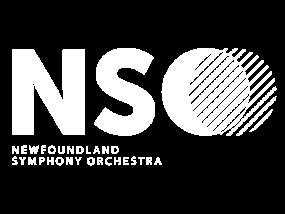




Congratulations to the esteemed Newfoundland Symphony Orchestra (NSO) on the launch of their 2024-2025 season. The NSO remains a cornerstone of Newfoundland and Labrador’s cultural arts scene, captivating with diverse programming that embraces pop culture, broadening appeal across generations. In 2023-24, the NSO engaged communities by offering in-school and virtual programs for students and free online concerts for seniors, enriching lives through music. As they begin this new season, the NSO honours maestro Marc David for his remarkable 30-year career, shaping the orchestra’s legacy and leaving a lasting impact on Newfoundland and Labrador’s cultural landscape. The Government of Newfoundland and Labrador proudly supports the NSO, recognizing its pivotal role in enriching our province’s arts and culture sector.
On behalf of the City of St. John’s, I extend warm greetings to the Newfoundland Symphony Orchestra as you embark on your 2024/2025 season with the inspiring theme of “Resonance.” This season holds special significance as you celebrate the remarkable 30-year career of Maestro Marc David. His dedication, passion, and leadership have left a lasting mark on the NSO, resonating deeply with audiences in our city and beyond. The arts play a crucial role in enriching our lives, fostering creativity, and bringing people together. The NSO’s commitment to delivering exceptional musical experiences reflects the vibrant cultural landscape we’re fortunate to have in St. John’s. Your performances not only entertain but also inspire and uplift, creating lasting moments. As we celebrate this milestone season, my sincere gratitude goes to the musicians, staff, volunteers, and supporters of the NSO. Your tireless efforts ensure the symphony thrives and resonates with audiences of all ages. I’m confident that this season will be filled with memorable performances that leave a lasting impact. Congratulations to Maestro Marc David on his illustrious career, and best wishes to the NSO for a successful and resonant 2024/2025 season.
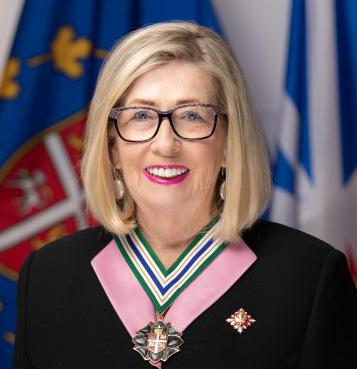
Joan Marie J. Aylward, O.N.L., B.N., R.N. Lieutenant Governor of NL
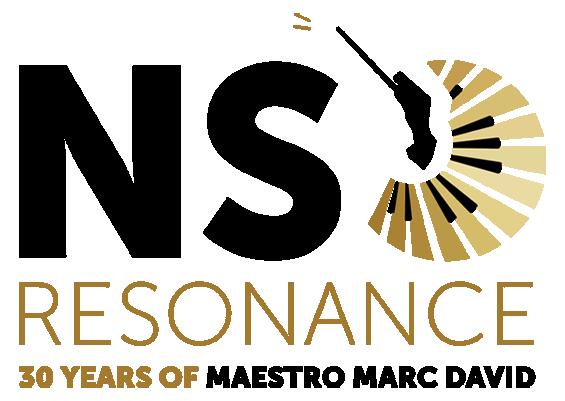
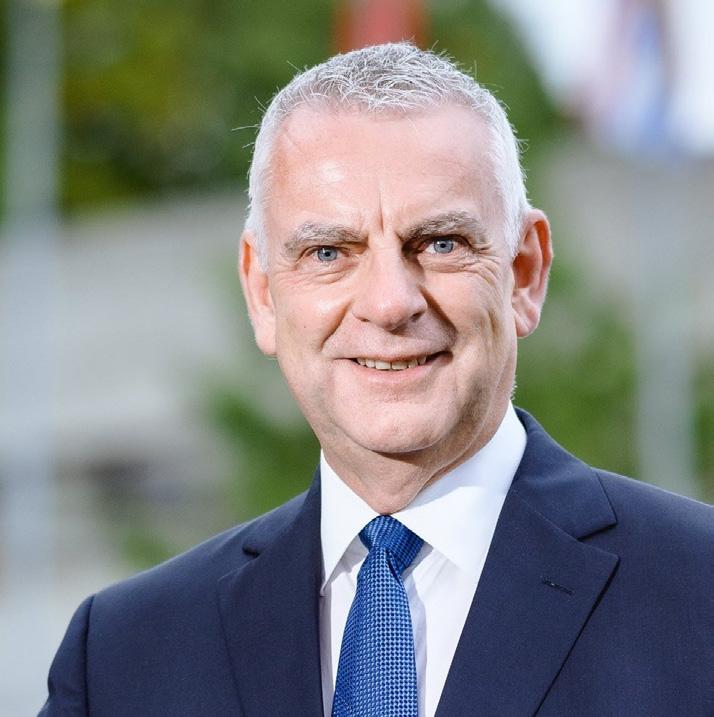
Danny Breen Mayor of St. John’s
As Honorary Patron, it is my pleasure to extend best wishes to the Newfoundland Symphony Orchestra for the 2024/2025 season. Once again, the NSO will delight audiences with a season full of performances for many different musical tastes. This year’s theme is “Resonance”. Indeed, the NSO resonates throughout our province and contributes much to our rich artistic culture. Now with 84 members, the NSO has come a long way since its inception as a fledgling ensemble in 1962. This season also marks the final one for Principal Conductor Maestro Marc David. For 30 years the Orchestra has been guided by his steady hand. We join with you in celebrating his contributions, and his leadership with the NSO. Thank you Maestro Marc David for all the joy you have brought for audiences over your years with the NSO. I hope you will enjoy each performance this year. To the musicians, staff, crew, and all who play a part within the NSO, I wish you the best for your season, which I am confident will resonate with pride for audiences throughout the province. We are so proud of you, and we celebrate your continued success as you begin your new season in the Year of the Arts. Bravo!

Friday, March 21, 2025 • St. John’s Arts & Culture Centre
Camille Pépin
Les eaux célestes 7 min.
I. Tisser les nuages
II. La séparation
III. Les Larmes Perlées
IV. Le Pont des ailes
Robert Schumann
Piano Concerto in A minor, op. 54
I. Allegro affettuoso
II. Intermezzo: Andantino grazioso
III. Allegro vivace
INTERMISSION
30 min.
Antonín Dvořák
Symphony No. 7 in D Minor, Op. 70
I. Allegro maestoso
II. Poco adagio
III. Scherzo: Vivace - Poco meno mosso
IV. Finale: Allegro

We acknowledge the province of Newfoundland and Labrador as the traditional territory of diverse Indigenous groups, and we acknowledge with respect the diverse histories and cultures of the Beothuk, Mi’kmaq, Innu, and Inuit of this province. We strive for respectful relationships with all the peoples of this province as we search for collective healing and true reconciliation and honour this beautiful land together.


Magnetic, easy-going, and delightfully articulate, Canadian pianist/conductor Ian Parker captivates audiences wherever he goes. As a pianist, he has appeared with top Canadian orchestras including the symphonies of Toronto, Quebec, Vancouver, Victoria, Winnipeg, Edmonton, Orchestre Métropolitain, and the Calgary Philharmonic. In the U.S., orchestral highlights include the San Francisco, Cincinnati, National, Santa Barbara, Richmond, and Honolulu symphonies as well as the Cleveland Orchestra at Blossom, to name just a few. During the 2019/20 season, Mr. Parker will make his debuts with the Savannah and Bakersfield symphonies, and will return to the Pensacola and Okanagan symphonies, among others.
In addition to his work at the keyboard, Ian Parker is currently in his second season as music director and principal conductor of the VAM Symphony Orchestra at the Vancouver Academy of Music. Working with some of Canada’s most promising young orchestral players, Mr. Parker programs and conducts four concerts per season in Vancouver’s historic Orpheum Theatre. In July 2020 he will lead the orchestra in a 50th anniversary tour throughout China. He is also artistic director of the Resonate chamber music series at the Kay Meek Centre in North Vancouver. An enthusiastic recitalist, Mr. Parker has performed across the United States, Europe, Israel, and throughout Canada on tours with Debut Atlantic, Jeunesses Musicales du Canada, and Piano Six. Recital highlights include the Walter Reade Theater at Lincoln Center, UCLA, the University of British Columbia, and collaborative performances at the Hawaii International Music Festival and the Morgan Library in New York City.
Mr. Parker’s recordings include a CD with the London Symphony conducted by Michael Francis featuring three piano concertos: Ravel Concerto in G, Stravinsky Capriccio, and Gershwin Concerto in F, released by ATMA Classique, and an all-fantasy solo CD including fantasies of Chopin, Schumann, and Beethoven on Azica Records. Additionally, CBC Records released a recording of three Mozart concertos for one piano (K. 467), two pianos (K. 365), and three pianos (K. 242) featuring Mr. Parker and his two cousins, Jon Kimura Parker and Jamie Parker, with the CBC Radio Orchestra and Mario Bernardi on the podium.
First Prize winner at the 2001 CBC National Radio Competition, Ian Parker has also won the Grand Prize at the Canadian National Music Festival, the Corpus Christie International Competition and the Montreal Symphony Orchestra Competition. At The Juilliard School, he received the 2002 William Petschek Piano Debut Award and, on two occasions, was the winner of the Gina Bachauer Piano Scholarship Competition. Heard regularly on CBC Radio, he has also performed live on WQXR (hosted by Robert Sherman) in New York.
Born in Vancouver to a family of pianists, Mr. Parker began his piano studies at age three with his father, Edward Parker. He holds both the Bachelor and Master of Music degrees from The Juilliard School, where he was a student of Yoheved Kaplinsky. While at Juilliard, he was awarded the Sylva Gelber Career Grant by the Canada Council for the Arts, presented annually to the “most talented Canadian artist.”


“Talent has taken him from Montreal to Tokyo” (The New Classical FM)
Canadian-Romanian conductor Andrei Feher has earned a reputation for his musical maturity and integrity, natural authority on the podium, and an imaginative and intelligent approach to programming. He is hailed for his “ability to connect with his players, using their skills as if they were the piano and he the pianist” (The Record).
Feher regularly appears with top Canadian and European orchestras. His noteworthy 2019 debut with the BBC Symphony Orchestra, performing Stravinsky’s Divertimento from The Fairy’s Kiss, was recorded and airs on BBC Radio 3. Subscription appearances include Symphony Nova Scotia, Tokyo Symphony Orchestra, Orquesta sinfónica RTVE Madrid, and Orchestre de Chambre de Lausanne. Additional highlights include appearances as guest conductor with Orchestre Symphonique de Montréal, Orchestre Symphonique de Québec, Les Violons du Roy, Orchestre Philharmonique de MonteCarlo, Orchestre National d’Ile de France, Orchestre Métropolitain de Montréal and Romanian Radio National Orchestra.
Feher’s 2023/24 Season marked debut appearances at Scottish Chamber Orchestra, Enescu Festival in Bucharest and at Orchestre Symphonique de Laval.
In 2018, at age 26, Feher was appointed Music Director of the Kitchener-Waterloo Symphony, making him one of the youngest to lead a major Canadian orchestra. During his five-year tenure as Music Director, Feher is credited with seeing the Orchestra through pandemic closures with 12 full-orchestra online programs and transforming the symphony’s relationship with French speakers in the region and beyond. Performance highlights under his artistic direction include Carmen, La Traviata, and Mahler’s Second Symphony, with numerous sold-out shows held at the Raffi Armenian Theatre within the Centre In The Square, a concert hall seating over 2,000.
Having gained early experience as assistant to Fabien Gabel at the Orchestre Symphonique de Québec, at the age of 22 Feher joined the Orchestre de Paris as Assistant Conductor to its Music Director, Paavo Järvi. During this time he collaborated with conductors including Zubin Mehta, Valery Gergiev, Christoph von Dohnányi and Jaap van Zweden. Feher has collaborated with some of today’s most eminent performers including Emanuel Ax, Marc André Hamelin and Erin Wall. In 2013, he was awarded the Prix-Opus Discovery of the Year.
A strong advocate of contemporary music, Feher has recently performed works by Eric Champagne, Pierre Mercure, George Dimitrov, Ciprian Pop and Abigail Richardson, as well as the world premiere of Thierry Besancon’s opera for children Les Zoocrates with Opéra de Lausanne. In November 2015, Feher conducted the world premiere of Soleil Noir by Pierre Jodlowski with the Orchestre de Pau-Béarn, which resulted in an immediate invitation to conduct the work in Toulouse in November 2016.
Born in Romania into a family of musicians, Feher began his musical education as a violinist in his hometown SatuMare with Nagy Margareta before continuing his studies in Montréal at age 13 when his family immigrated to Canada. An accomplished violinist, he studied at Joseph-François-Perrault and at the Conservatoire de musique de Montréal with Johanne Arel and Raffi Armenian. Feher is based in Montréal with his wife and two young sons.




VIOLIN 1
Heather Kao
Dominic Greene
Whit Fitzgerald
Lauren Smee
Gabriel Brodeur
Claire Boudreau
Zhongli Hu
VIOLIN 2
Nancy Case-Oates
Carole Bestvater
Elena Vigna
Ilyas Duissen
Jacquelyn Redmond
Karen Hawkin
Stewart Gillies
Cathy Anstey
VIOLA
Kate Read
Ema Shiroma-Chao
Chantelle Jubenville
Rosaura Aguilar
Emily Pynn
Norma Noseworthy
Jonathan Stevenson

CELLO
Nathan Cook
Nulibeth Ortiz
Sandra Pope
Abby Hammond
Nancy Bannister
Katherine Shipley
BASS
Denise Lear
Nick Howlett
Matthew Hardy
FLUTE
Michelle Cheramy
Sarah Comerford
OBOE/ ENGLISH HORN
Annie Corrigan
Kathy Conway-Ward
CLARINET
Glenn Rice
Brenda Gatherall
BASSOON
Grant Etchegary
Nicole Hand
HORN
Emily Dunsmore
Doug Vaughan
Michelle Stevenson
Hannah Gaultais
TRUMPET
Katie Sullivan
Jill Dawe
TROMBONE
Darren McDonald
Erin Sullivan
BASS TROMBONE
Andrew Cooper
PERCUSSION
Rob Power
Etienne Gendron
Amy Parsons (OCP)
Michael Grandy
HARP
Sarah Veber
CELESTE
Jenny Griffioen
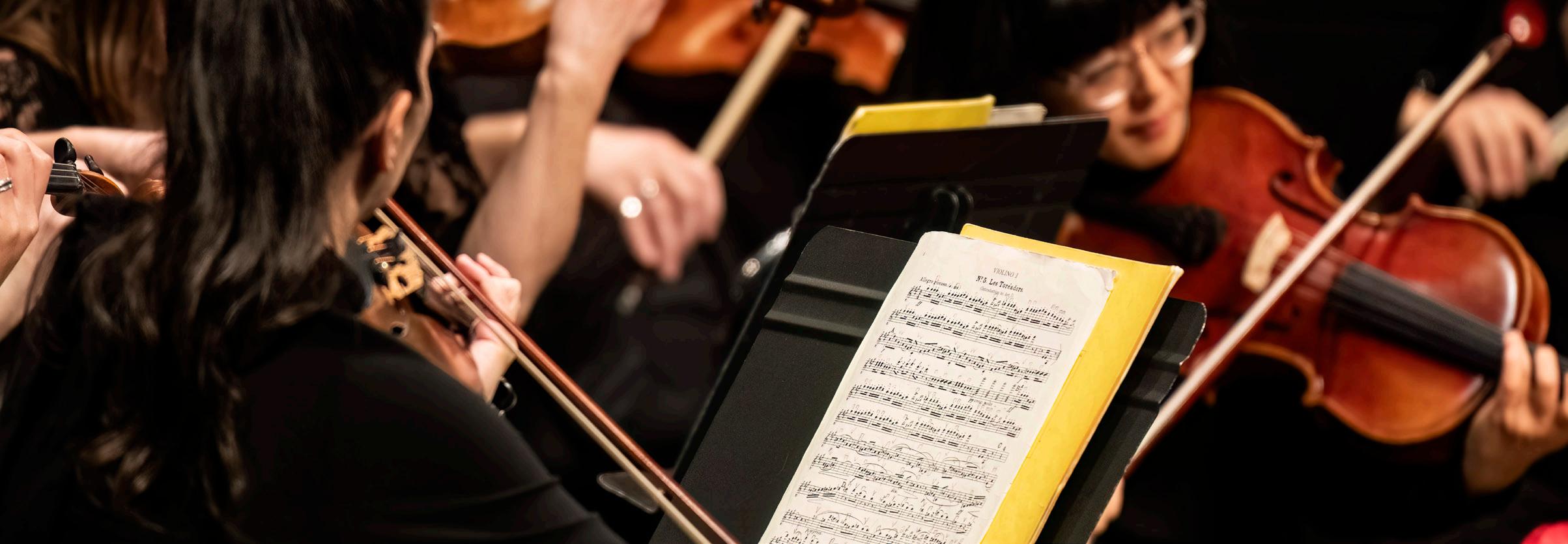
Camille Pepin’s (b. 1990) Les eaux célestes (2023) takes inspiration from the symphonic poem of the late 19th century, evoking the harmonic and textural language of Claude Debussy. Based on a Chinese folktale, the piece follows the love story between the sky god’s daughter Orihime and the celestial cow herd Hikoboshi. When the two lovers neglect their duties, Orihime’s father separates them with a celestial river—the milky way. Orihime’s pearly tears eventually inspire a flock of birds to create a bridge with their wings, allowing the two young lovers to reunite.
Robert Schumann (1810-1856) was not only a prolific composer but also a noted music critic. Schumann often employed two different alter egos in his criticism; the gentle, romantic Eusubius and the tempestuous Florestan, channeling these two personalities to discuss composers and musical works. Florestan and Eusubius also appear in Schumann’s Piano Concerto in A minor (1845), the two characters lending two different musical ideas and temperaments to the piece’s opening movement. We are introduced first to Florestan with a raucous series of descending chords that jumpstart the work. But quickly Eusubius jumps in with a gentle flowing melody whose opening notes are a melodic cipher for Clara, Schumann’s wife and the soloist at the work’s premiere.
Schumann originally conceived of this work as a single movement fantasy, but he was unable to find a publisher for the work in this form. Under Clara’s advice, Schumann expanded the work to include two additional movements, though these later movements (played without pause between them) retained some of the fantasia-like quality seen in the first movement. The work is particularly noted for its balance between the piano and the orchestra, with Schumann allowing the latter to shine alongside the soloist.
While Antonín Dvořák (1841-1904) is often remembered for his New World Symphony, an expression of American National identity, the composer’s Czech heritage was also near and dear to his heart. An established international composer by the early 1880s, Dvořák was invited by the Royal Philharmonic Society in London to compose Symphony No. 7 in D Minor (1885). Czech culture had been suppressed under the rule of the Holy Roman Empire, and Dvořák sought to write a symphony that captured the struggles of the Czech people to regain their culture and independence. Dvořák clearly felt this goal intimately—he stated that the opening theme of the first movement was inspired by the arrival of Czech nationals in Prague, and expressed a hope that “this Czech music will move the world!” Yet while many of his previous works had drawn directly on Czech musical idioms, such as the Slavonic Dances which mimicked traditional folk dances, Symphony No. 7 eschewed direct Czech musical references. Instead, Dvořák sought only to write a symphony whose quality could not be denied, demonstrating the worthiness of Czech culture by sheer mastery of the symphonic tradition. Considered by many to be his greatest symphony, Dvořák himself conducted the successful premiere of the symphony in London.
Program Notes provided by Dr. Annalise Smith

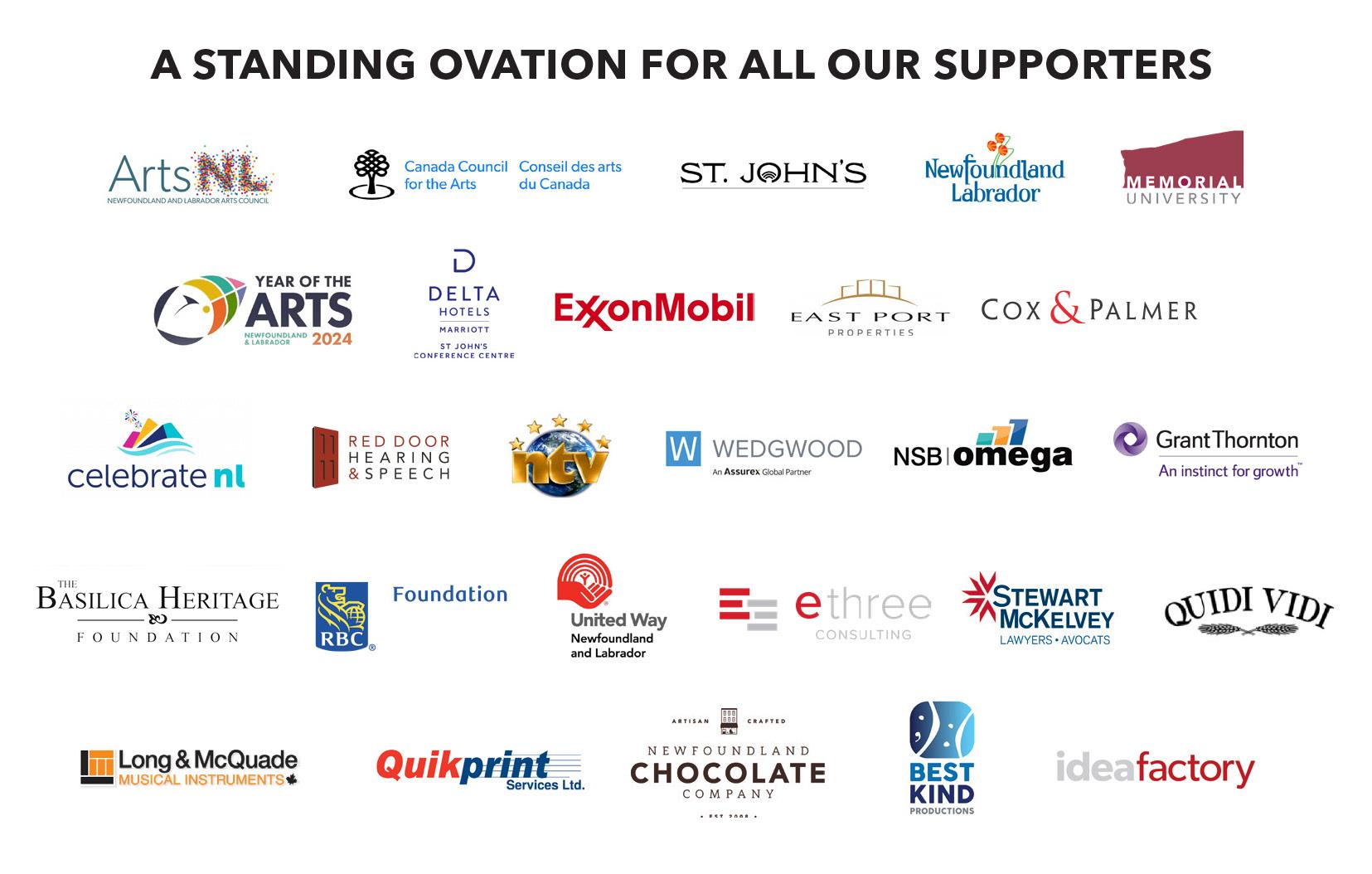

Lynn Ann Pye, Patron Relations Manager
Jennifer Brennan, Education & Outreach Coordinator
Maria Penney, Marketing & Development Manager
Dominic Greene, Personnel Manager
Steve Power, Production Manager/Video Production/Editing
Jenny Griffioen, Librarian
Kyle McDavid, Graphic Designer
N SO Bo ard
T om Hickey (Chair)
Ian Penne y (Vice-Chai r)
Paul McDonald (Past Chair)
D ouglas Wright (Treasurer)
Conor Stack (Corporate S ecretary)
J essica Chapman
H e a ther McKinnon
Michelle Davis
A n d rea Rose
Duncan Fitzpatri ck
Glenn Colton
